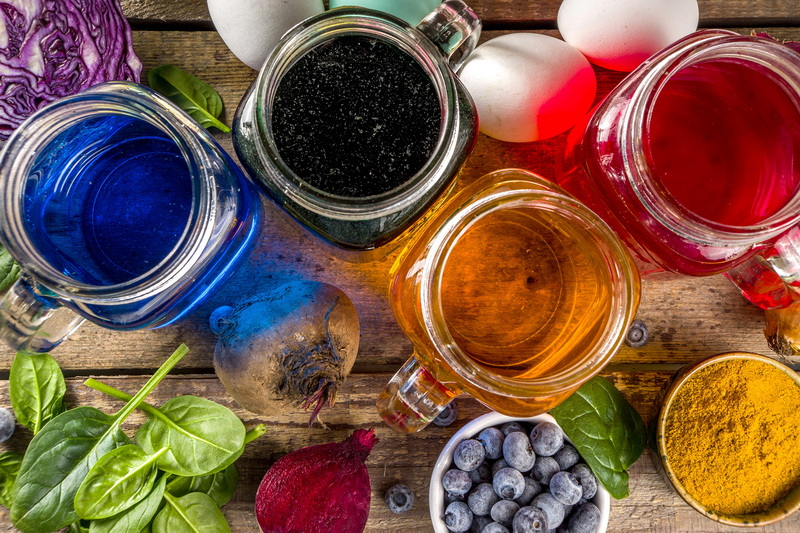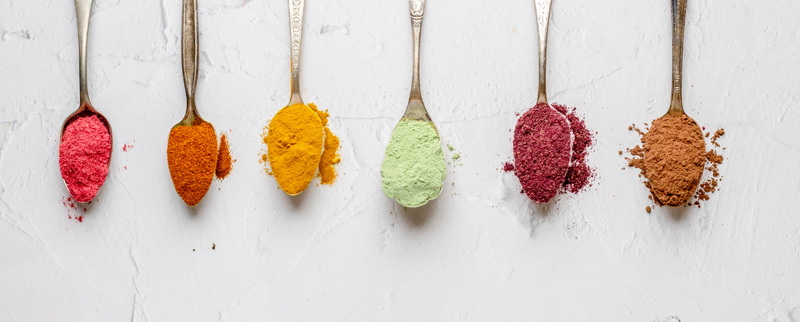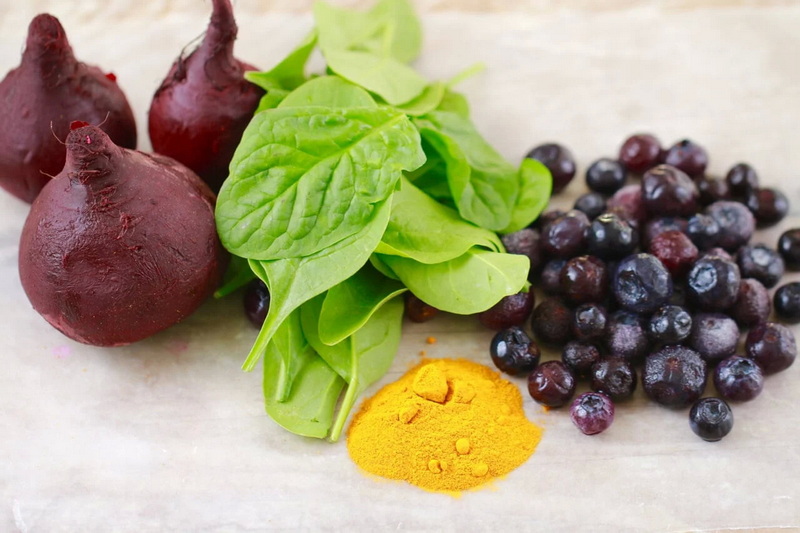Content Menu
● The Evolution of Natural Food Colors
● Why Choose Natural Food Colors?
● Key Natural Food Colors Manufacturers and Suppliers in Toronto
>> Sun Food Tech
>> Calico Food Ingredients
>> Robertet Canada
>> McCalls Baking
>> Ambrosia
>> Healthy Planet
● Innovative Technologies in Natural Food Coloring
● Applications of Natural Food Colors
● Regulatory Considerations
● How to Choose the Right Supplier
● Conclusion
● Frequently Asked Questions
>> 1. What are natural food colors and how are they made?
>> 2. Why should I choose natural food colors over synthetic ones?
>> 3. Are natural food colors suitable for all types of food products?
>> 4. How do I ensure the quality of natural food colors?
>> 5. What trends are shaping the future of natural food colors?
In today's food industry, the demand for clean-label, plant-based, and natural ingredients is at an all-time high. As consumers become more health-conscious and aware of artificial additives, the need for natural food colors has surged. Toronto, as a global metropolis and a hub for food innovation, is home to a dynamic network of natural food colors manufacturers and suppliers. This article explores the landscape of natural food colors manufacturers and suppliers in Toronto, their offerings, technological advancements, and the growing importance of natural colorants in food production.

The Evolution of Natural Food Colors
Food coloring has a long history, with early civilizations using plant and mineral extracts to enhance the visual appeal of food. The industrial revolution introduced synthetic dyes, but concerns over safety and health have led to a resurgence of natural alternatives. Today, natural food colors manufacturers and suppliers focus on extracting colors from fruits, vegetables, spices, and edible plants, using advanced technologies to ensure purity and stability.
The modern era has witnessed significant improvements in extraction techniques, such as supercritical fluid extraction, enzymatic extraction, and membrane filtration. These methods allow manufacturers to obtain highly concentrated and stable pigments while preserving the nutritional and functional properties of the source materials. This evolution has enabled natural food colors to compete effectively with synthetic dyes in terms of vibrancy, shelf life, and cost-efficiency.
Why Choose Natural Food Colors?
Natural food colors offer several advantages over synthetic alternatives:
- Health and Safety: Derived from edible sources, they are generally recognized as safe and free from harmful chemicals. This reduces the risk of allergic reactions and adverse health effects associated with some synthetic dyes.
- Consumer Appeal: Clean-label products with natural ingredients are more attractive to modern consumers who prioritize transparency and wellness in their food choices.
- Versatility: Suitable for a wide range of food and beverage applications, natural colors can be tailored to meet specific product requirements, including taste neutrality and stability under various processing conditions.
- Sustainability: Many natural food colors manufacturers and suppliers prioritize environmentally friendly extraction and processing methods, often sourcing raw materials from sustainable agriculture or utilizing by-products from the food industry to minimize waste.
- Regulatory Compliance: Natural colors often face fewer regulatory hurdles and enjoy broader acceptance in international markets compared to synthetic dyes, facilitating export opportunities.
Key Natural Food Colors Manufacturers and Suppliers in Toronto
Toronto boasts a vibrant ecosystem of companies specializing in natural food colorants. The city's strategic location, combined with its access to diverse raw materials and advanced research institutions, makes it an ideal hub for natural food colors manufacturing and supply.
Sun Food Tech
Sun Food Tech is a prominent name among natural food colors manufacturers and suppliers in Canada, offering a wide range of plant-based colorants for food and beverage applications. Their products are known for vibrant hues, stability, and compliance with international quality standards. They invest heavily in research and development, ensuring their colorants meet the evolving needs of the food industry.
Calico Food Ingredients
Calico Food Ingredients collaborates with global partners to supply specialty ingredients, including a complete line of natural colors. Their technical expertise ensures that clients receive tailored solutions for appearance, taste, and nutritional value. Calico emphasizes transparency and traceability in sourcing, appealing to brands focused on sustainability.
Robertet Canada
Robertet Canada offers a diverse portfolio of natural colors, including annatto, paprika, and beta carotene extracts. Their products are designed for specific markets, ensuring optimal performance in various food categories. They also provide customized blends and formulations to meet unique customer demands.
McCalls Baking
McCalls Baking provides natural gel and powder colors made from fruits, seeds, vegetables, and minerals. Their offerings cater to both commercial and artisan bakers seeking clean-label solutions. McCalls focuses on delivering colors that maintain vibrancy even after baking and freezing processes.
Ambrosia
Ambrosia distributes plant-based food coloring options that are gluten-free, non-GMO, and vegan. Their Color Garden® line delivers bright, appealing colors for baked goods and confections. Ambrosia is known for its commitment to quality and customer service, supporting product innovation through technical guidance.
Healthy Planet
Healthy Planet offers a range of plant-based food colors suitable for health-conscious consumers. Their products are vegan, gluten-free, and allergen-free, aligning with the needs of specialty diet markets. Healthy Planet also emphasizes sustainable packaging and ethical sourcing.

Innovative Technologies in Natural Food Coloring
Natural food colors manufacturers and suppliers in Toronto are at the forefront of innovation. Key advancements include:
- Gentle Extraction Methods: Techniques such as cold-pressing, ultrasound-assisted extraction, and supercritical CO2 extraction preserve the integrity of pigments while maximizing yield. These methods reduce the use of harsh solvents and energy consumption.
- Stabilization Solutions: Natural pigments are often sensitive to pH, temperature, and light. To overcome these challenges, manufacturers employ encapsulation technologies, microencapsulation, and the use of natural stabilizers like gums and proteins to enhance color stability and shelf life.
- Custom Blending: Creating bespoke color solutions tailored to specific product needs is a growing trend. By blending different natural extracts, manufacturers can achieve a wider color spectrum and improve performance in complex food matrices.
- Digital Color Matching: Advanced software tools allow precise formulation and color matching to meet brand specifications, reducing trial and error and speeding up product development.
- Sustainability Focus: Innovations also extend to sourcing, with some manufacturers utilizing agricultural by-products such as grape skins, beet pulp, and carrot peels, turning waste into valuable colorants.
Applications of Natural Food Colors
Natural food colors are used across a broad spectrum of food and beverage products:
- Bakery: Cakes, pastries, icings, and bread benefit from natural colors that withstand baking temperatures and maintain vibrancy.
- Confectionery: Candies, gummies, chocolates, and coatings require bright and stable colors that appeal to consumers while meeting clean-label demands.
- Dairy: Yogurts, ice creams, and cheeses use natural colors to enhance visual appeal without compromising taste or texture.
- Beverages: Juices, soft drinks, smoothies, and teas incorporate natural colors that are water-soluble and stable under various storage conditions.
- Snacks: Chips, popcorn, and extruded snacks utilize natural colors to create appealing hues that differentiate products on shelves.
- Plant-Based Foods: Vegan meats, dairy alternatives, and ready meals leverage natural colors to mimic the appearance of traditional animal-based foods, improving consumer acceptance.
- Nutraceuticals and Supplements: Capsules, powders, and functional foods use natural pigments to improve aesthetics and convey health benefits.
Regulatory Considerations
Natural food colors manufacturers and suppliers in Toronto adhere to strict regulatory standards to ensure consumer safety and product integrity. Key points include:
- Health Canada Compliance: All food colorants must meet Canadian food safety regulations, including permissible sources and maximum usage levels.
- Labeling Requirements: Transparent ingredient labeling is essential for consumer trust. Natural food colors must be accurately declared, often using their botanical or chemical names.
- Global Certifications: Many suppliers obtain certifications such as Non-GMO, Organic, Kosher, and Halal to meet diverse market needs and facilitate international trade.
- Allergen Management: Suppliers implement rigorous testing and segregation to prevent cross-contamination, especially important for allergen-sensitive consumers.
- Traceability: Full traceability from raw material sourcing to finished product is increasingly demanded by brands and regulators alike, ensuring accountability and quality control.
How to Choose the Right Supplier
Selecting the ideal natural food colors manufacturers and suppliers involves several factors:
- Product Range: Ensure the supplier offers the colors and formats suitable for your application, whether powders, liquids, gels, or encapsulated forms.
- Quality Assurance: Look for certifications (ISO, GMP) and quality control protocols, including batch testing and stability studies.
- Technical Support: Access to R&D and technical expertise can help optimize product formulations and troubleshoot challenges.
- Sustainability Practices: Consider suppliers with environmentally responsible sourcing and production, including certifications and transparent supply chains.
- Cost and Supply Reliability: Evaluate pricing structures, minimum order quantities, and the supplier's ability to meet demand consistently.
- Customization Capability: If your product requires unique shades or functional properties, choose suppliers who offer custom blending and formulation services.
- Customer Service: Responsive communication and after-sales support are critical for long-term partnerships.
Conclusion
The landscape of natural food colors manufacturers and suppliers in Toronto is thriving, driven by innovation, quality, and a commitment to sustainability. As consumer demand for natural, clean-label products continues to grow, Toronto's manufacturers and suppliers are well-positioned to meet the needs of food producers locally and globally. Whether you are a brand owner, wholesaler, or manufacturer, partnering with reputable natural food colors manufacturers and suppliers ensures your products stand out with vibrant, safe, and sustainable colors. By embracing advanced technologies and sustainable practices, these companies contribute not only to healthier food options but also to a more environmentally responsible food industry.

Frequently Asked Questions
1. What are natural food colors and how are they made?
Natural food colors are pigments extracted from edible sources such as fruits, vegetables, spices, and flowers. They are produced using gentle extraction methods like cold pressing, solvent extraction with food-grade solvents, or supercritical fluid extraction to preserve the natural hue and nutritional value of the source materials.
2. Why should I choose natural food colors over synthetic ones?
Natural food colors are free from artificial chemicals and synthetic dyes, making them safer and more appealing to health-conscious consumers. They support clean-label initiatives, reduce the risk of allergic reactions, and align with sustainable and ethical food production practices.
3. Are natural food colors suitable for all types of food products?
Yes, natural food colors can be used in a variety of applications, including bakery, dairy, beverages, snacks, and plant-based foods. However, due to their sensitivity to pH, heat, and light, formulation adjustments and stabilization techniques may be necessary to maintain color integrity.
4. How do I ensure the quality of natural food colors?
Work with reputable natural food colors manufacturers and suppliers who provide quality assurance, certifications, and technical support. Review product specifications, conduct stability tests, and request samples to evaluate performance in your specific application.
5. What trends are shaping the future of natural food colors?
Key trends include the rise of plant-based and vegan products, increasing demand for clean-label and allergen-free ingredients, advances in extraction and stabilization technologies, and a growing focus on sustainability, transparency, and ethical sourcing in the food industry.

 English
English 




























